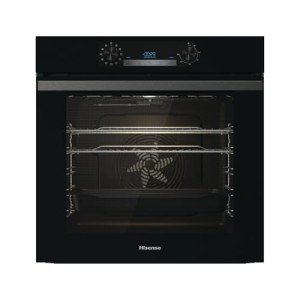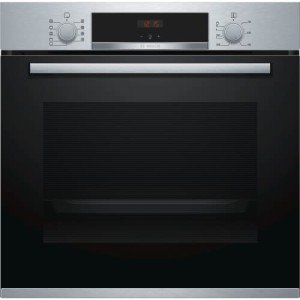5 Killer Quora Answers On Builtin Oven
페이지 정보
작성자 Margarita Cisse… 댓글 0건 조회 3회 작성일 25-05-19 13:17본문
The Comprehensive Guide to Built-In Ovens: Features, Benefits, and FAQs
Built-in ovens are a popular choice for modern kitchen areas, using versatility, efficiency, and a smooth style that integrates seamlessly into cabinetry. This post will look into the different aspects of built-in fitted ovens, including their features, benefits, setup alternatives, upkeep tips, and responses to commonly asked concerns.
What is a Built-In Oven?
A built-in oven is developed to be set up within kitchen cabinets and is readily available in various configurations, such as single or double ovens. Unlike freestanding intergrated ovens, built-in models provide a streamlined look and provide more flexibility in kitchen style. They are available in electric, gas, Builtin oven and steam choices, catering to a variety of cooking preferences.

Features of Built-In Ovens
Built-in ovens are loaded with features that enhance cooking experiences. Here are some of the most common functions to think about:
| Feature | Description |
|---|---|
| Self-Cleaning | Lots of designs include a self-cleaning function that burns off residue at heats, streamlining maintenance. |
| Convection Cooking | This feature utilizes a fan to circulate hot air, cooking food more uniformly and rapidly. |
| Smart Technology | Some ovens come equipped with Wi-Fi connection, enabling users to control the builtin oven from another location by means of smartphone. |
| Numerous Cooking Modes | Consist of choices such as baking, broiling, roasting, and air frying, offering flexibility for various meals. |
| Temperature Probe | Keeps an eye on the internal temperature level of food, making sure perfectly cooked meals every time. |
| Streamlined Design Options | Available in various finishes (stainless-steel, black, white) to match kitchen decor. |
Advantages of Built-In Ovens
The installation of a built-in oven brings numerous advantages to any kitchen:
- Space Efficiency: Built-in ovens make the most of kitchen area, offering a clean and organized appearance without compromising performance.
- Improved Cooking Performance: With sophisticated functions like convection cooking and exact temperature level controls, built-in ovens frequently outshine conventional models.
- Style Flexibility: These ovens can be set up at eye level, permitting easy access without bending down, which can be particularly helpful for people with physical constraints.
- Enhanced Resale Value: A properly designed kitchen with premium built-in appliances may attract prospective purchasers, boosting total residential or commercial property value.
- Personalization Options: Many brands provide customizable designs that fit the particular measurements and aesthetic of specific kitchen areas.
Installation Options
When picking a built-in builtin oven, comprehending the installation options is crucial. Here are the most typical setups:
Single Built-In Oven: Ideal for smaller kitchens, these units provide enough space to cook a range of dishes at the same time, best for everyday cooking.
Double Built-In Oven: Best suited for devoted cooks and large families, double ovens permit for synchronised cooking at two various temperature levels, ideal for meals that require varied cooking methods.
Mix Steam and Oven: A hybrid option that combines the benefits of conventional baking with steam cooking. This choice is excellent for retaining moisture in foods, making it ideal for baking bread or roasting meats.
Maintenance Tips for Built-In Ovens
Preserving a built-in oven is vital for its durability and ideal efficiency. Here are some useful upkeep tips:
Regular Cleaning: Use the self-cleaning function when essential, and clean down the exterior and interior surface areas frequently to avoid grease accumulation.
Check the Seals: Inspect the oven door seals for any wear or damage to ensure correct insulation and cooking performance.
Temperature Calibration: Occasionally evaluate the temperature precision using an oven thermometer, specifically if cooking times seem longer than normal.
Ventilation: Ensure adequate ventilation around the oven to prevent overheating, especially for built-in designs that may be surrounded by cabinets.
Frequently Asked Questions About Built-In Ovens
1. Are built-in ovens more pricey than freestanding designs?Yes, built-in ovens tend to be more pricey due to their design, installation requirements, and additional features. However, their benefits can validate the cost in the long run.
2. Can you set up a built-in oven yourself?While some handy people may attempt to install a built in ovens and microwaves-in oven, it is suggested to work with a professional to make sure proper setup, ventilation, and safety requirements.
3. What is the typical life-span of a built-in oven?The common lifespan of a built-in oven is around 10 to 15 years, depending on use and upkeep. Regular care can assist extend its durability.
4. Are built-in integrated ovens energy effective?Numerous modern built-in ovens are designed with energy efficiency in mind, incorporating functions like insulation and accurate temperature controls that might minimize energy usage compared to older designs.
5. Can a built-in oven be repaired if it breaks?Yes, built-in ovens can frequently be fixed. It is advisable to get in touch with a certified technician for diagnoses and repair work to make sure security and compliance with warranty contracts.
Built-in ovens are an exceptional addition to any modern-day kitchen, offering a combination of style, functionality, and advanced cooking functions. With the best knowledge about their functions, advantages, and maintenance, house owners can make informed options to enhance their cooking experiences. As kitchen design patterns continue to progress, the built-in oven stays a staple for those seeking to blend aesthetic appeals with efficiency in their cooking areas.

댓글목록
등록된 댓글이 없습니다.